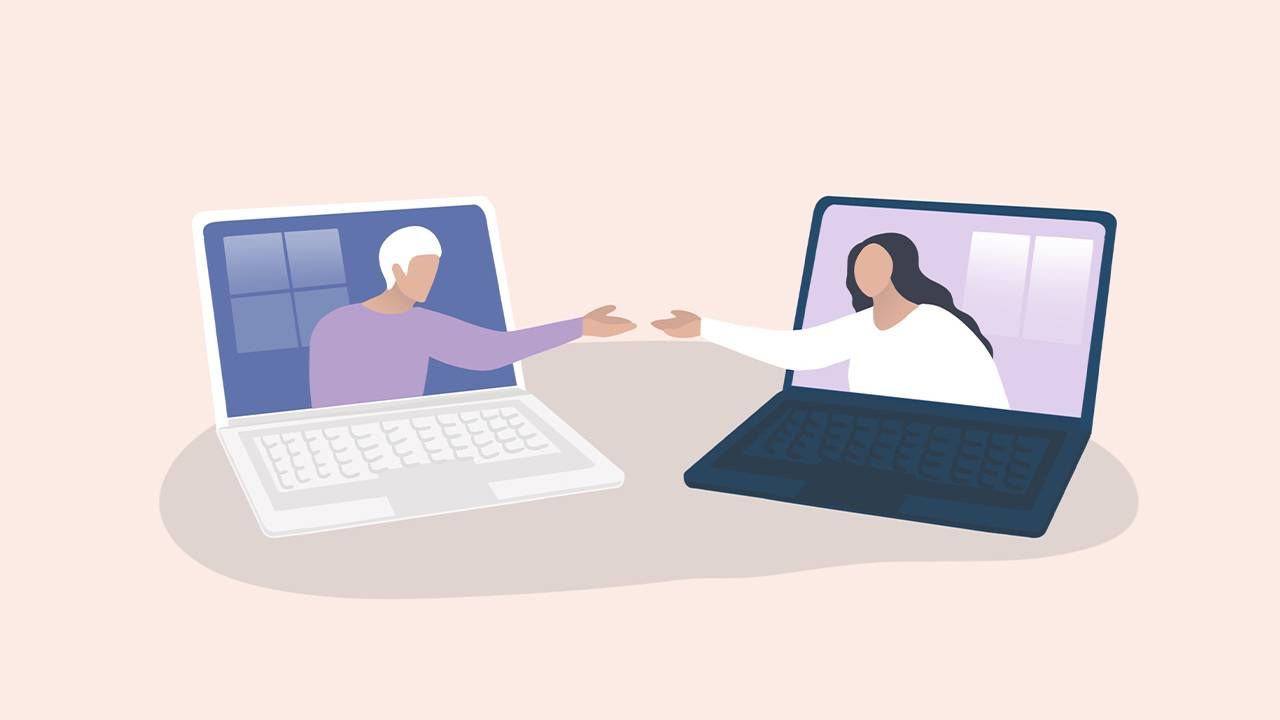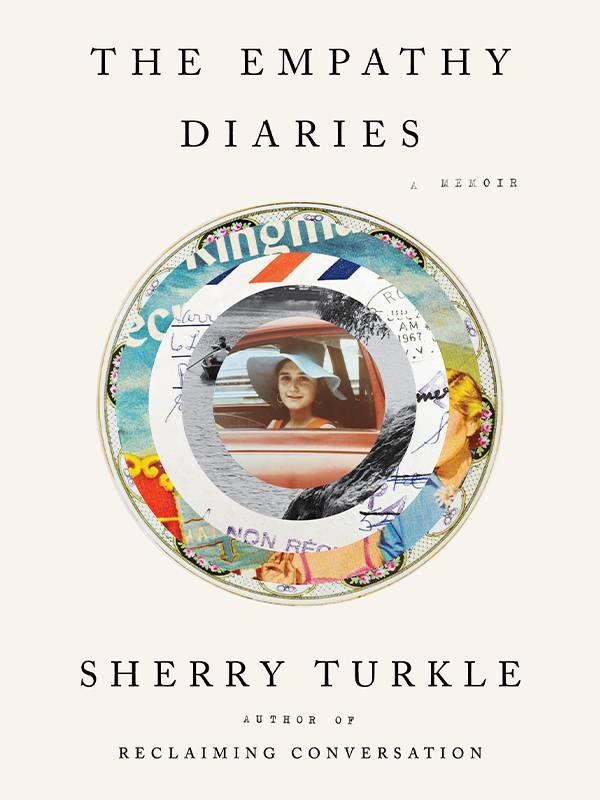The Importance of Looking Back: A Q & A with Sherry Turkle
The MIT professor and tech critic on her new memoir, ‘The Empathy Diaries’
MIT professor and bestselling author Sherry Turkle is the kind of public intellectual who bursts onto the scene periodically with a big idea steeped in research and anchored in a new book.

Like many, I first became aware of Turkle through her books, "Reclaiming Conversation" and "Alone Together," which explored how technology shapes our lives and relationships. I credit her with convincing me to banish cell phones from the dinner table, something my husband had been trying to do for years. I feel like we reclaimed an intimacy.
Turkle's newest book, "The Empathy Diaries," looks inward, revealing the genesis of her ideas about intimacy, connection and empathy. Her early years were shaped by a multigenerational household where she was nurtured by her mother, grandparents and an unmarried aunt. Part of an enclave of Jewish immigrants from Belarus, she was the family prize — a brainy treasure who became the vessel for her protective and secretive mother's dreams.
Much like her heroine Nancy Drew, Turkle's own childhood was filled with secrets and mysteries, including an absent father whose story unfolds in ways that have uncanny relevance to Turkle's career trajectory.
She traces her own understanding of empathy through memories of her father conducting psychological experiments on her, and later through experiences with her first husband. He was a brilliant professor whose passion for ideas and conversation mattered more to him than showing up for a dinner they hosted for guests. Or being faithful.
Turkle's need to look back at the people, objects, events and ideas that shaped her feels like a natural thing to do in one's eighth decade (she's 72).
Our relationship to objects is a major thread in Turkle's work, too, and the memoir is filled with details of particular objects that mark her development as a daughter (the memory closet), a woman (the Saks Fifth Avenue dress), a scholar (the traveling "Speedy" bag purchased by her aunt in Paris) and a writer (the taupe Corona typewriter her grandmother bought her). It's hard to imagine reading "The Empathy Diaries" and not thinking of the objects that mark our own passages.
Turkle's need to look back at the people, objects, events, and ideas that shaped her feels like a natural thing to do in one's eighth decade (she's 72). I connected with her recently for a brief chat over Zoom, with the video off so that we could focus.
Below is a condensed version of our conversation.
Marci Alboher: This book is so much about sense-making of your early life and influences. Do you think all of us need some version of this as we age?
Sherry Turkle: I can only say that for me doing it was one of the most meaningful exercises of my life. Because I learned so much — and this is from someone who's been analyzed twice. I saw things that psychoanalysis hadn't taught me. Psychoanalysis, because of its free associative nature, doesn't force you to create a disciplined timeline the way that doing a memoir does. Not everyone needs that kind of reconciliation, clarity, and [an understanding of] connections made, but for me, who had such trouble with my mother, it meant so much.
So much of the book is about the little cruelties I inflicted on my mother because I was angry at her. I was so smart, so I knew how to be as mean as possible. It was horrible. And now, I feel such love for her. I know what she did for me. Whereas before I didn't know what she did for me or saved me from.
You broke a lot of barriers as a woman in a very male profession, becoming a tenured professor at MIT in the 1980s. What career advice do you give to younger people now?
Be gentle with yourself. The cost of winning may be very high for you unless you are very compartmentalized. I wasn't surrounded by a supportive women's movement. I was alone. I was still making Steve Jobs dinner instead of being invited to the dinners. My own consciousness was at a low ebb. Either you need to be surrounded by a political movement or you need to separate what goes on at work and your own self-worth in a radical way. I was still a very integrated soul, taking a tremendous sense of self-worth from what went on at work. That can be a big mistake.
I want women to hear about my generation of women — not just that we won, but the way we won often took such a price. When I mentor young women, I say it's important to win at work but your work is not your life.
You've written and spoken about how digital life affects us. How do you use social media?
I think that Facebook — whether for old, young, rich, poor — needs a hard look. The way it takes you as a product, exploits your data, selling you to other people, it's a political and consumer problem that needs to be addressed. Just because we grew up with the Internet doesn't mean the Internet is all grown up. Facebook is still something that's fixable. It's not too late.
Social media is tempting because it lets you present the face you want to. It's a kind of hiding thing.
Given all of that, social media can be tremendously helpful if you use it for your human purposes in ways that make you happy and in ways that don't undermine being with people that you love face to face.
During the pandemic, I've been 100% pro social media. I've had three book clubs going, I have all my girlfriend groups. I'm in a book club with my daughter. I'm completely technology plugged in at a time like this. I have nothing bad to say about people meeting on Zoom. I teach on Zoom. But I have my office hours on the phone. Because I think that we can give each other fuller attention. I'm not worrying about my [digital] background. I'm not worrying about my lighting. I'm just focusing on my voice and what I'm saying.
My rule is to do what feels to you like giving the people you care about your fullest attention. Very rarely is that sitting down to dinner with two phones on the table.
Do you think the problems with technology manifest in the same way for older people?

This is such a good question. Older people have their own vulnerabilities. Social media is tempting because it lets you present the face you want to. It's a kind of hiding thing. I have migraines. Sometimes I choose to be on the phone. I can still be brilliant but they don't need to know that I have an ice pack on my head. I consider that fair hiding.
I interviewed an older person who used to be stylish and is now in a nursing home. I think she was using texting and Facebook to seem the way she used to be, not the way she was living now. It's like me with the ice pack wrapped around my head. It's fair hiding. And I don't want to judge or take that away from people.
But there's another kind of relationship where it's important that we don't use hiding no matter how fair it is. I want people to be with me when I have that ice pack to offer me a cup of tea, hold my hand, say, "I care about you even when you have a migraine. You are valuable even if you can't speak when you have a headache."
You are known for being anti robots-as-companions for older people. Why?
Well, they are coming. I can't get through a day without being asked about the robots. The things I want to talk about are things I want to talk to a person about. I was frightened at the beginning of the pandemic. I went from Soul Cycling to the age group most likely to be intubated. I could not settle down. I didn't settle down until my daughter came and took care of me and loved me for a couple of weeks. I needed the warmth of that contact.
I needed to talk to people my age, too, people who were anxious about our fears of death and separated from our children. I needed a person who was alive. The robots' interests will not be mine. They won't be afraid of death.


